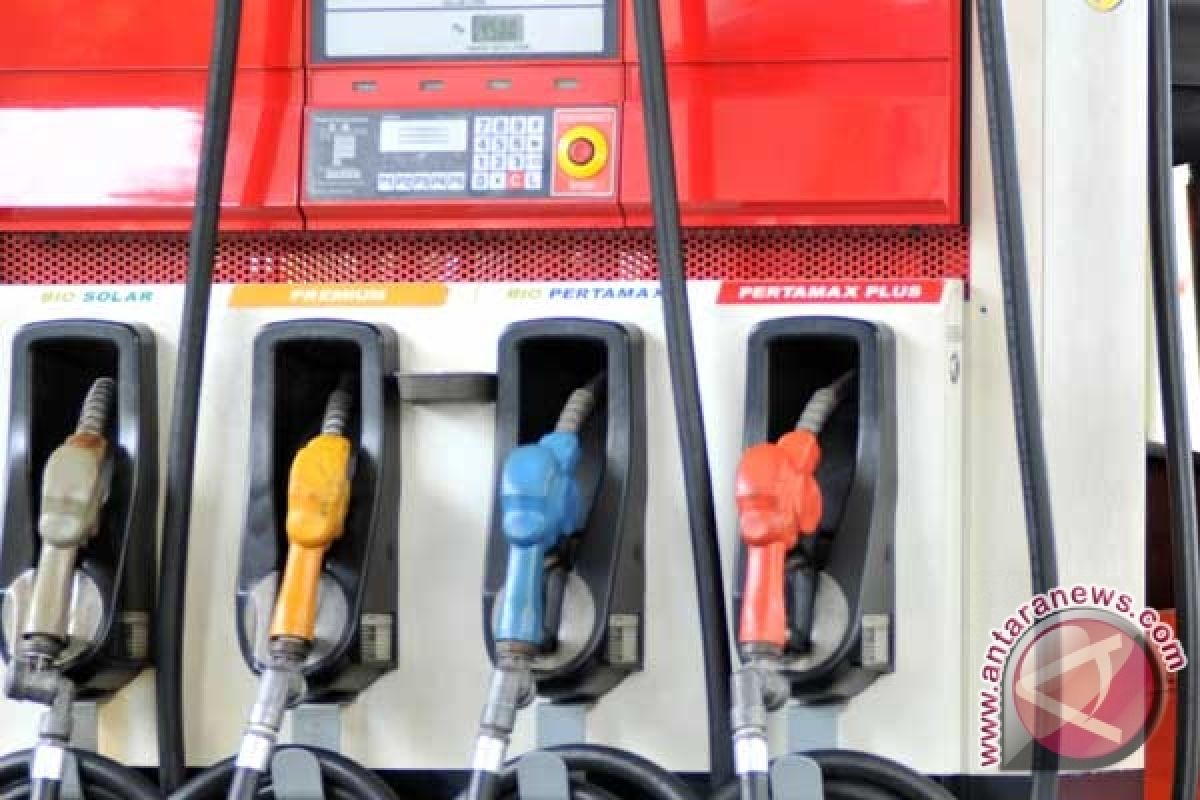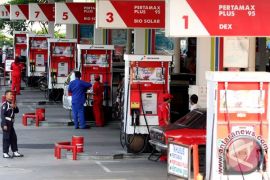"Industries, particularly the food and beverage industries, are challenged by the increase caused by the fuel oil price hikes. While consumers` purchasing power will weaken, industries will also face increasing transportation costs," Benny Wahyudi, director general for agro-industry affairs, said over the weekend.
The director general predicted that the growth of the food and beverage industries will slow this year from 9.19 percent in 2011 to 8.15 percent.
But his colleague Dedi Mulyadi, who is director general for regional industry development affairs, said that, overall, fuel oil price hikes will not largely affect Indonesia's industries.
He explained that even if the government raises fuel oil prices and electricity tariffs, it would not have much effect on industries in the country. "If the government raises fuel oil price by Rp1,500 per liter and the electricity tariff by 10 percent, simultaneously, it will cut output in the industrial sector, but its percentage will only be small, just about -0.26 percent," Dedi Mulyadi said.
Though this week, rallies opposing the government`s plan to raise fuel oil prices continue across the country. Demonstrators claimed the policy would cause commodity prices to increase and burden the public.
The government is planning to raise the price of subsidized fuel oil on April 1 and has submitted two options to the House of Representatives (DPR). In the first proposal, the government seeks to raise the price of subsidized premium gasoline from Rp4,500 to Rp6,000 per liter, and diesel oil from Rp4,500 to Rp6,000 per liter.
Industrialists in the food and beverage sectors concurred with Director General Dedi Mulyadi`s view, saying fuel price hikes will not seriously affect them.
"The increase in fuel prices will not affect industries too much, possibly only about three percent on distribution, because industries have used international price standards since November 2011," Secretary General of Food and Beverages Businesses Association Franky Sibarani said.
Further, the fuel oil price increase is expected to only affect the transportation sector of the industries, or distribution costs, he said. Sibarani noted that the increase in the prices of food and drink could not be caused by only one factor, but there must be a number of events that contribute to such increases.
"If increases happen, it would not be because of fuel oil price increases, but due to the increase in packaging prices as a result of the hike in the world crude price or of the increase of sugar prices and other factors," he added.
Director general Dedi Mulyadi pointed out that his analysis was based on a computable general equilibrium (CGE) comparative static analysis developed by the University of Gajah Mada.
"It is simulated in the analysis that fuel oil prices increase 33 and 44 percent, or Rp1,500 and Rp2,000 per liter, while electricity increases to 10 percent," Dedi said.
Based on the analysis, the largest impact will be suffered by metal and steel industries, by -1.3 percent if fuel prices rise to 33 percent and the electricity tariff to 10 percent. Additionally, the impact will be -1.39 percent if fuel oil prices rise to 44 percent and electricity tariff increases to 10 percent.
An increase of fuel oil prices by 33 percent and the electricity tariff by 10 percent is expected to reduce the real gross national product (GNP) by -0.163 percent due to the predicted drop in household consumption by -0.160 percent, exports by -0.221 percent and investment by -0.160 percent.
The ministry of industry`s analysis also concluded that an increase of fuel oil prices by 33 percent or 44 percent will have a direct impact on the increase in the transportation costs, seeing an increase of 19.6 percent or 23.8 percent.
Therefore, in order to assist domestic industries in overcoming the impact of the fuel oil price hikes, the public's consumption needs to be directed to the purchase of locally made products to boost the nation`s economic development.
"Our annual consumption expenditures amount to Rp4 thousand trillion, of which 56 percent are contributed by the local currency rupiah," Fauzi Azis, an expert in marketing and domestic consumption promotion affairs of the ministry of industry, said at a press conference during the launch of "Made in Indonesia Expo 2012" last week.
The data indicates the large potential the Indonesian people have on product consumption. "Thus, it is very important to promote domestic products to local consumers, including food and beverage products," Fauzi said.
Further, the growth of the food and beverage industries is predicted to slow this year. According to Agro-Industry Director General Benny Wahyudi, his ministry`s long-term plan has set a growth target of 8.15 percent in the food and beverage sectors.
"We have to set the target at a minimum growth of 8.15 percent," he pointed out.
(T.A014/INE/KR-BSR/O001)
Reporter: by Andi Abdussalam
Editor: Priyambodo RH
Copyright © ANTARA 2012











